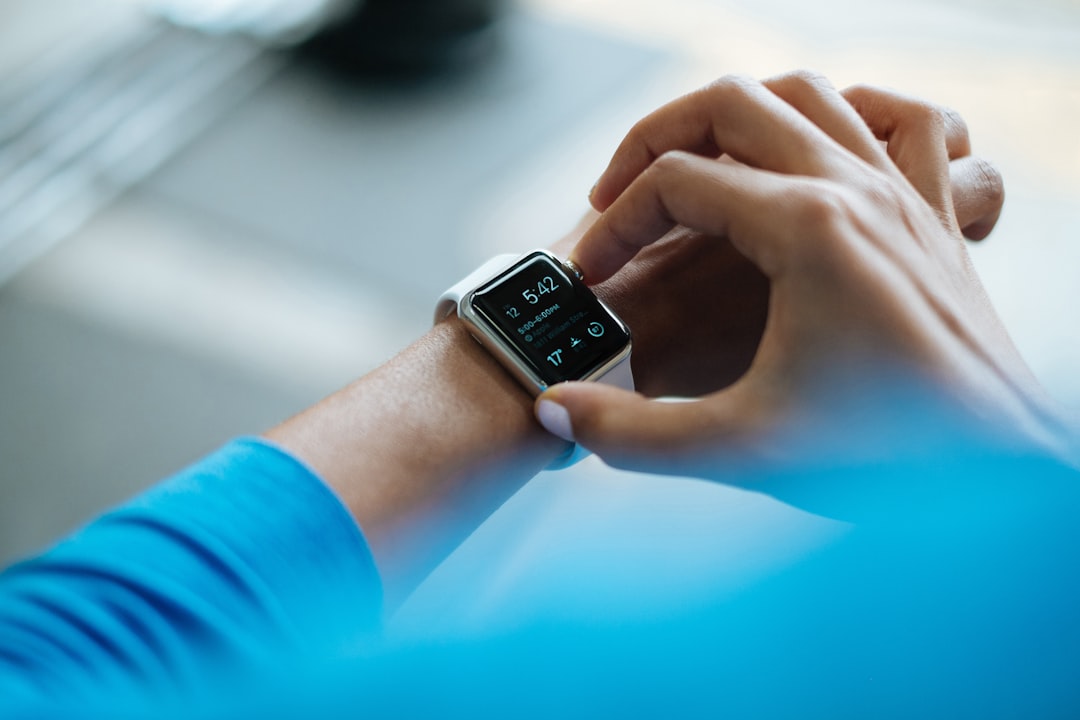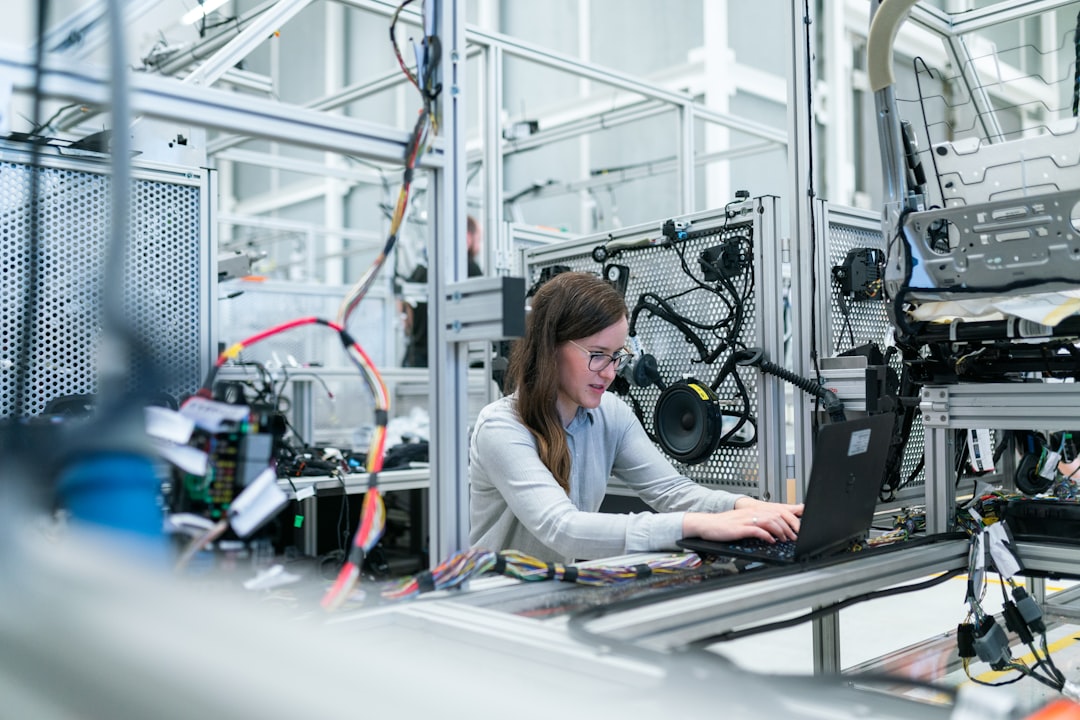Unlock encrypted content
Please enter your SSCE key to initiate on-the-fly decryption.
Decryption key: (Click cancel if you don't have the key)
Copied link to clipboard.
This feature is unavailable for free accounts. Upgrade now and enjoy all Premium benefits.
Go Premium!
This feature is unavailable for free accounts. Upgrade now and enjoy all Premium benefits.
Go Premium!
Please open this page in browser ( Google Chrome or Safari ) to use this feature.
Open In Browser
The Internet of Medical Things (IoMT): Revolutionizing Healthcare Data Storage and Transfer
Random related video for this blog.
Copied share link to clipboard.
This revolutionary concept refers to the interconnected network of medical devices, wearables, and sensors that collect and transmit valuable patient data. With the rapid growth of IoMT, efficient data storage and transfer have become crucial for healthcare providers and researchers. In this article, we will explore the benefits of cloud storage and data mirroring in the context of IoMT, as well as delve into the potential of uploading the human brain or memory to the cloud.
Data Mirroring: Ensuring Redundancy and Reliability
In the field of healthcare, the importance of data cannot be overstated. Patient records, medical images, and research findings are just a few examples of the vast amount of information that needs to be stored securely and made readily available. Data mirroring across multiple data centers has emerged as a powerful solution to address this challenge. Data mirroring involves creating exact replicas of data and storing them in multiple locations. This redundancy ensures that even if one data center fails or experiences an outage, the data can still be accessed from another location. By mirroring data across geographically diverse data centers, healthcare organizations can significantly reduce the risk of data loss and ensure high availability of critical information. Furthermore, data mirroring enables efficient disaster recovery. In the event of a natural disaster or a system failure, the mirrored data can be quickly restored, minimizing downtime and ensuring continuity of patient care. This level of reliability is particularly crucial in healthcare, where timely access to accurate information can mean the difference between life and death.Efficient Data Transfer and Cloud Storage Benefits
Efficient data transfer is essential in the IoMT landscape, where vast amounts of data are generated and transmitted in real-time. Traditional methods of data transfer, such as physical media or manual entry, are not only time-consuming butalso prone to errors. Cloud storage offers a more streamlined and secure alternative. Cloud storage allows healthcare providers and researchers to upload and store large volumes of data securely. With the advancements in cloud technology, the process of uploading and transferring data has become faster and more efficient. Additionally, cloud storage providers, such as FileLu, offer features like file synchronization and mobile apps that enable seamless access to data from any device, anywhere in the world. One of the significant benefits of cloud storage is scalability. Healthcare organizations can easily scale their storage capacity as their data needs grow, without the need to invest in expensive hardware or infrastructure. This flexibility is particularly valuable in the context of IoMT, where the volume of data generated is expected to increase exponentially.
Uploading the Human Brain or Memory to Cloud Storage: A Futuristic Concept
The idea of uploading the human brain or memory to cloud storage may sound like science fiction, but it is an area of ongoing research and exploration. The concept revolves around the possibility of digitizing the human brain's neural connections and storing them in the cloud, allowing for the preservation and potential replication of human consciousness. While this concept is still in its infancy, researchers are making significant strides in understanding the complexities of the human brain and developing technologies like neural implants. Neural implants are devices that can interface with the brain, record neural activity, and potentially stimulate specific regions to enhance cognitive function. The potential applications of uploading the human brain to the cloud are vast. It could enable the creation of personalized AI assistants that possess the knowledge and experiences of an individual. It could also facilitate advancements in medical treatments for neurodegenerative diseases by providing a virtual backup of a patient's brain. However, it is important to note that uploading the human brain to the cloud raises profound ethical and privacy concerns. Questions about ownership of the uploaded data, potential misuse, and the impact on personal identity need to be carefully addressed before such technologies become a reality.Conclusion
The Internet of Medical Things (IoMT) is transforming the healthcare industry, and efficient data storage and transfer are critical components of this revolution. Data mirroring across multiple data centers ensures redundancy and reliability, enabling healthcare providers to access critical information even in the face of unforeseen events. Cloud storage offers numerous benefits, including scalability, efficient data transfer, and seamless access to data from any device. While uploading the human brain to the cloud remains a futuristic concept, ongoing research in neural implants and brain digitization highlights the potential for groundbreaking advancements in the future.Frequently Asked Questions (FAQs)
Q: How does data mirroring work in healthcare? A: Data mirroring involves creating exact replicas of data and storing them in multiple locations. In healthcare, this ensures redundancy and high availability of critical information, minimizing the risk of data loss and enabling efficient disaster recovery.
Q: What are the benefits of cloud storage in the healthcare industry? A: Cloud storage offers scalability, efficient data transfer, and seamless access to data from any device. It eliminates the need for expensive hardware and infrastructure investments and enables healthcare organizations to store and manage large volumes of data securely.
Q: Is uploading the human brain to the cloud a reality? A: Uploading the human brain to the cloud is still a concept under research. While advancements in neural implants and brain digitization show promise, ethical and privacy concerns need to be addressed before such technologies become a reality.
Case Studies 1. "Hospital X Implements Data Mirroring for Enhanced Data Security and Disaster Recovery" In this case study, Hospital X describes how they implemented data mirroring across multiple data centers to ensure data security and uninterrupted access to critical patient information. The study highlights the benefits of data mirroring in healthcare and the positive impact it had on patient care. 2. "Research Institute Y Utilizes Cloud Storage for Efficient Data Management" Research Institute Y shares their experience of adopting cloud storage for managing and analyzing large volumes of research data. The case study explores the scalability, flexibility, and cost-efficiency of cloud storage solutions and their impact on research productivity. 3. "Exploring the Future: Uploading the Human Brain to the Cloud" This case study delves into the ongoing research and ethical considerations surrounding the concept of uploading the human brain to the cloud. It provides insights from leading researchers in the field and explores the potential implications and applications of such technology in the future.
By Amelia Isabella
Email: [email protected]
Related
The Future of Technology: Exploring Cyberpunk, Brain-Computer Interfaces, Aerial Photography,...
July 24, 2023
Read More
User-Friendly Interface and Mobile App Available: Streamlined File Sharing Workflows...
July 24, 2023
Read More
The Future of Technology: Human-Machine Interface, Time Travel, and Compliance-Ready...
July 24, 2023
Read More
Highly Available Cloud Infrastructure: Streamlined File Sharing Workflows and Secure...
July 24, 2023
Read More
File Streaming: Revolutionizing File Management with Blockchain Technology and Biometric...
July 25, 2023
Read More
Technological Advancements in Vehicle Automation: Streamlining Files and Folders Management
July 25, 2023
Read More
Popular
Latest
The Future of Digital Transformation: Exploring Smart Homes, Efficient File...
November 30, 2025
Read More
Exploring the Benefits of Cloud Storage and Innovative Technologies in...
November 26, 2025
Read More
The Future of Technology: Exploring Biohacking, Space Tourism, and Digital...
November 23, 2025
Read More
The Future of File Sharing: Streamlined Workflows for Photographers and...
November 19, 2025
Read More
Exploring the Intersection of Technology: From Cybersecurity to Augmented Reality...
November 16, 2025
Read More
The Future of File Management: Embracing Edge Computing and Efficient...
November 12, 2025
Read More
The Future of File Sharing: Exploring User-Friendly Solutions and Data...
November 5, 2025
Read More
The Future of Cloud Storage: How FileLu Empowers Creative Professionals...
November 2, 2025
Read More
The Future of Autonomous Technologies: Innovations in Robotics, File Sharing,...
October 29, 2025
Read More
Emerging Technologies Revolutionizing File Management: From Li-Fi to Robust Collaboration...
October 26, 2025
Read More
Emerging Technologies: Exploring the Impact of File Access Auditing, Genetic...
October 19, 2025
Read More
The Future of Data Storage: Exploring Advanced Encryption, Mobile Integration,...
October 5, 2025
Read More
Exploring the Future of Data Management: Security, Efficiency, and Cognitive...
September 28, 2025
Read More
Revolutionizing Data Management: Innovations in Storage, Security, and Sustainable Technology.
September 24, 2025
Read More




















